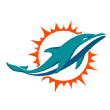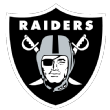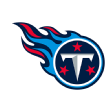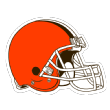Many NFL fans have no difficulty imagining themselves as the general manager of their favorite team.
We watch the games. We know which players are emerging and which are in decline. We might not be scouts by trade, but we sure as heck know enough not to sign that guy to a $100 million contract.
One of the reasons fantasy football is so popular is because it allows us to sit up in the owners suite and pull the strings on our own franchise. Secretly, we probably think we could outperform a few actual general managers if given the chance to match wits on trades, free agency and the draft.
That's why ESPN.com compiled the definitive list of the worst contracts in NFL history, a compilation of dubious signings every armchair general manager surely would avoid. After all, it's easy to make all the right moves with the benefit of hindsight.
The first portion of our list, as voted by an ESPN panel of experts, appears below.
For Nos. 10-1 in our countdown and an explanation of our criteria and methodology, click on the following link.
Click here for the worst contracts in NFL history, Nos. 10-1
25. Mike Wallace, Miami, 2013
 Initial reports: Five years, $60 million with $30 million guaranteed.
Initial reports: Five years, $60 million with $30 million guaranteed.
Actual payout by Miami: $27.1 million for two seasons.
In his first three pro seasons, Wallace grew to become one of the NFL's most imposing deep threats by averaging 18.7 yards per reception for Pittsburgh. He totaled 171 catches for 3,206 yards and 24 touchdowns during that span and was named to the Pro Bowl team in 2011. During his fourth year, he caught another eight touchdown passes, but his yards per reception dipped sharply to 13.1.
Perhaps that should have been an indication that Wallace's future production would be good -- but not great.
In two seasons with Miami, Wallace made 140 catches for 1,792 yards and 15 touchdowns. By comparison, the other top free-agent receiver in 2013, Wes Welker, signed a two-year deal for just $12 million with the Broncos and produced 122 receptions for 1,242 yards and 12 touchdowns.
Months after Wallace signed with Miami, his father told USA Today that the receiver had passed up a more lucrative deal from Minnesota. The Vikings wound up getting Wallace after all in March 2015, trading a fifth-round draft pick to the Dolphins for the player and a seventh-round pick. The deal allowed Miami to avoid a $3 million bonus Wallace was due.
24. Neil O'Donnell, N.Y. Jets, 1996
 Initial reports: Five years, $25 million with $7 million guaranteed.
Initial reports: Five years, $25 million with $7 million guaranteed.
Actual payout by Jets: $10.8 million for two seasons.
After winning the 1995 AFC championship with the Steelers, O'Donnell was an attractive free agent for teams in need of a quarterback. The Jets, coming off a 3-13 record, were in the market and gave him a contract that was substantial in the days of a $40 million salary cap.
O'Donnell became the first quarterback not to return to his team after a Super Bowl season since the Vikings traded Joe Kapp to the Patriots in 1970. Although the Jets also signed offensive tackle Jumbo Elliott and drafted wide receiver Keyshawn Johnson with the No. 1 overall pick, the ensuing season was a disaster. O'Donnell suffered an injured shoulder and torn calf muscle and went 0-6 with four touchdown passes and seven interceptions as the Jets went 1-15 overall.
Enter head coach Bill Parcells, who supplanted Rich Kotite for the 1997 season. O'Donnell's leash got shorter, and he was twice benched in favor of Glenn Foley. O'Donnell improved in '97, throwing 17 touchdown passes and seven interceptions. But Parcells didn't think he was getting enough production for the money from O'Donnell, who completed 56.3 percent of his throws with an 80.3 passer rating that season.
O'Donnell was cut in June 1998 when he refused to restructure his contract. The Jets then signed 34-year-old Vinny Testaverde to replace him and reached the AFC Championship Game that season. O'Donnell joined the Bengals for the '98 season and finished his career with five seasons in Tennessee as a backup.
23. Chuck Smith, Carolina, 2000
 Initial reports: Five years, $21 million with $4.5 million guaranteed
Initial reports: Five years, $21 million with $4.5 million guaranteed
Actual payout by Carolina: $5.9 million for one season.
Smith built an impressive resume as a pass-rusher with Atlanta, registering 58½ sacks in eight seasons, including 30½ during his final three years with the Falcons. He had feasted on Carolina in particular, recording nine sacks in the previous five seasons. Maybe it was that firsthand knowledge that convinced the Panthers to sign him in February 2000 despite knowing about his arthritic right knee.
Unfortunately, the knee failed Smith soon afterward. He played just two games for Carolina, recording one tackle and zero sacks. The Panthers placed him on injured reserve in October, and he underwent major surgery in December. He was released in July 2001 after failing a physical, and Carolina took a cap hit of nearly $5 million over the subsequent two seasons.
22. Lamarr Houston, Chicago, 2014
 Initial reports: Five years, $35 million with $15 million guaranteed.
Initial reports: Five years, $35 million with $15 million guaranteed.
Actual payout by Chicago: $15 million (includes full 2015 salary) - current contract.
Coming off four seasons as a starter at defensive end for the Raiders, Houston was regarded as one of the top pass-rushers heading into free agency -- and Chicago paid him accordingly.
Houston got off to a slow start with the Bears last season, with just one tackle in the first four games and five tackles through seven games. When Houston finally got his first sack in Week 8, he blew off some steam. Unfortunately, he ruptured his right ACL celebrating the takedown of New England backup quarterback Jimmy Garoppolo -- while the Bears were trailing by 25 points in the fourth quarter.
He declared himself 100 percent heading into this season, going so far as to say, "I'm actually a lot better than I was before the surgery." Houston is listed as a backup linebacker after the Bears switched to a 3-4 defense in 2015. Houston has just four sacks and 17 tackles in 16 games with the Bears to this point, but he still has time to turn things around. Perhaps he turned the corner with two sacks in Monday night's win over the Chargers. It was a chance for Houston to bask, but he did so by performing the same celebration that ended his 2014 season prematurely.
21. T.J. Houshmandzadeh, Seattle, 2009
 Initial reports: Five years, $40 million with $15 million guaranteed.
Initial reports: Five years, $40 million with $15 million guaranteed.
Actual payout by Seattle: $13.7 million for one season.
Even at age 31, the longtime Bengals wideout with the tongue-twisting name -- pronounced Hoosh-min-zah-duh -- was a coveted free agent in March 2009. Cincinnati wanted him to stay. Minnesota also made a strong push to sign him. At the time, he was the only NFL player to have caught 90-plus passes in each of the three previous seasons.
Houshmandzadeh put up decent numbers in his lone season in Seattle -- 79 catches for 911 yards and three touchdowns -- but they weren't what you would expect from the No. 1 receiver on a team that threw the ball 609 times that season. To put his payout figure in perspective, consider that the 2009 salary cap was $128 million. New Seahawks head coach Pete Carroll released Houshmandzadeh a week before the 2010 season opener, and the former Pro Bowler played just two more pro seasons, catching 41 passes.
20. Donovan McNabb, Washington, 2010
 Initial reports: Five years, $78 million with $40 million guaranteed.
Initial reports: Five years, $78 million with $40 million guaranteed.
Actual payout by Washington: $9.7 million for one season.
The brief McNabb era in Washington was bizarre, even by the standards of a franchise that has made an art form of dysfunction for the better part of two decades.
Philadelphia made the unusual move of trading its longtime franchise quarterback to an NFC East rival when it decided to commit to Kevin Kolb for the 2010 season. The Eagles received two draft picks in the deal after turning down a previous offer of overpaid defensive tackle Albert Haynesworth.
McNabb was entering the final year of his contract and would turn 34 during the season. He regressed statistically and was benched for Rex Grossman during a Week 8 game in Detroit. After the ensuing bye week, McNabb signed a contract extension hours before Washington played on Monday Night Football in Week 10 against the Eagles, who had moved on to Michael Vick under center.
The reported terms were staggering -- including a total value that could reach $88.5 million with incentives -- for a player having his worst season since his rookie year. Then Vick and the Eagles routed Washington 59-28 with the nation watching. McNabb threw three interceptions, while Vick accounted for 413 yards and six touchdowns. McNabb played just four more games for Washington, with Grossman supplanting him for the final three games of 2010.
The damage could have been far worse for Washington, though. The team's actual payout to McNabb was a fraction of the gaudy figures provided by agent Fletcher Smith, and the team was able to unload McNabb to Minnesota on the eve of training camp in 2011. In return, Washington received a sixth-round pick in 2012, which turned into workhorse running back Alfred Morris.
Ultimately, Washington paid McNabb nearly $10 million for a 5-8 record in 13 games and a season of headaches. He completed 58.3 percent of his passes for 3,377 yards with 14 touchdowns and 15 interceptions.
In case you're wondering, McNabb needed to lead Washington to a Super Bowl victory in all five years of the contract to earn the full $88.5 million possible under the deal.
19. David Boston, San Diego, 2003
 Initial reports: Seven years, $47 million with $11.6 million guaranteed
Initial reports: Seven years, $47 million with $11.6 million guaranteed
Actual payout by San Diego: $9.6 million for one season.
Boston hit the open market after playing his first four pro seasons with Arizona, and San Diego reeled in the mercurial wideout with a hefty offer. The Chargers said they performed a thorough investigation on Boston prior to signing him, unfazed by character questions, steroid suspicions and injuries that cost him half the 2002 season.
Boston clashed with coaches in San Diego, and the team suspended him because of his conduct at one point. He caught 70 passes for 880 yards and seven touchdowns in 14 games with the Chargers but fell short of expectations.
The Chargers cut ties with Boston in March 2004, trading him to Miami for a sixth-round draft pick and a player to be named later. He missed all 16 games in 2004, battling injuries and reportedly testing positive for steroids. He finally took the field for the Dolphins in 2005, catching four passes in the final five games of his NFL career.
18. Jerry Porter, Jacksonville, 2008
 Initial reports: Six years, $30 million with $10 million guaranteed
Initial reports: Six years, $30 million with $10 million guaranteed
Actual payout by Jacksonville: $7.5 million for one season.
Two years removed from the retirement of Jimmy Smith, the Jaguars were still looking for someone to fill a void at the No. 1 wide receiver spot. Enter Porter, who had emerged from the shadows of Tim Brown and Jerry Rice to become an impact player in Oakland.
Jacksonville brought in Porter despite numerous red flags. In 2006, he caught only one pass all season for the Raiders -- he was inactive for nine games, suspended for two others and injured for the season finale. He made 44 receptions in 16 games for Oakland in 2007, which was enough to draw strong interest from the Jags.
The Porter experiment was an unequivocal failure for Jacksonville. He began the season with a hamstring ailment and ended it with a groin injury. In between, he played in 10 games, starting six, and caught 11 passes for 181 yards and one touchdown. Teammates criticized him for fracturing team chemistry, and the Jaguars cut him in February 2009.
17. Laurent Robinson, Jacksonville, 2012
 Initial reports: Five years, $32.5 million with $14 million guaranteed.
Initial reports: Five years, $32.5 million with $14 million guaranteed.
Actual payout by Jacksonville: $11.1 million for one season.
Still in need of a top receiving threat three years after Porter's departure, the Jaguars signed Robinson with hope that he could mitigate the disappointment of Porter, Reggie Williams, Matt Jones and others.
After spending two seasons each with Atlanta and St. Louis, Robinson emerged as a fifth-year pro with Dallas in 2011. He parlayed that performance into a deal with the Jaguars, who expected him to complement sophomore quarterback Blaine Gabbert.
Even at the time, however, the signing was viewed as a reach by many observers. Robinson had been cut by the Chargers during training camp in 2011. He then landed with the Cowboys but was waived once by Dallas before returning to catch 54 passes and score 11 touchdowns in 14 games. Robinson didn't get much of a chance to deliver for Jacksonville. He suffered four concussions in 2012, and the Jaguars released him the following March. In seven games with the Jaguars, he made 24 receptions for 252 yards.
16. Dale Carter, Denver, 1999
 Initial reports: Six years, $34.8 million with $7.8 million signing bonus.
Initial reports: Six years, $34.8 million with $7.8 million signing bonus.
Actual payout by Denver: $8.4 million for one season.
Denver signed the four-time Pro Bowl cornerback away from AFC West rival Kansas City to supplant Darrien Gordon after the Broncos won back-to-back Super Bowls. Carter began his tenure in Denver in solid fashion, making two interceptions and 54 tackles in 14 games during the 1999 season. But he never stepped onto a playing field again as a Bronco.
He was suspended for the entire 2000 season and half of 2001 after violating the league's substance-abuse policy for the fourth time. Denver released Carter when he was reinstated, and he finished the 2001 season with Minnesota.
Despite multiple arrests, the aforementioned rules violations and a financial dispute with the Broncos, the Saints awarded Carter a contract that at the time was reported to be worth $28 million over seven years. In New Orleans, he incurred another suspension, battled injuries and was cut after two mediocre seasons. He collected $6.5 million from the Saints and later finished his career with the Ravens.
15. Junior Galette, New Orleans, 2014
 Initial reports: Four years, $41.5 million with $23 million guaranteed.
Initial reports: Four years, $41.5 million with $23 million guaranteed.
Actual payout by New Orleans: $18.7 million for one season.
The Saints originally signed Galette as an undrafted free agent out of Division II Stillman College in 2010, and the linebacker became a key component of the team's defensive identity. Leading up to the 2014 season opener, New Orleans signed him to a sizable contract extension. Galette had just been voted as a team captain for the first time by teammates, and the pact was supposed to keep him with the Saints through 2019.
Instead, after a series of off-the-field issues, the Saints cut their losses and released Galette in July 2015. It was a move that saddled the team with a $17 million salary-cap hit that extends through next season. Galette played in all 16 games last season, starting 13 and recording 10 sacks and 33 tackles. Good numbers, but they came at a steep price.
One week after his release by New Orleans, Galette signed with Washington for the veterans minimum salary. He suffered a torn Achilles at practice in late August and will miss the entire 2015 season.
14. Daryl Gardener, Denver, 2003
 Initial reports: Seven years, $34.8 million with $5 million signing bonus.
Initial reports: Seven years, $34.8 million with $5 million signing bonus.
Actual payout by Denver: $5.4 million for one season.
Gardener was a first-round draft pick by Miami, where he played his first six NFL seasons. After one season in Washington, the Broncos signed the defensive tackle as an unrestricted free agent in March 2003.
The signing quickly turned into an unmitigated disaster for Denver. Gardener was arrested for getting into a fight outside a pancake house prior to training camp. In the process, he suffered a wrist injury that knocked him out of action until Week 6 of the regular season. He was twice suspended for conduct detrimental to the team and later deactivated for the final three games of the season. In between, he played in five games -- starting just twice -- and recorded five tackles and zero sacks.
After settling a financial dispute with the Broncos, Gardner was waived in June 2004. That marked the end of his NFL career, and he went on to become a competitive bodybuilder.
13. DeAngelo Hall, Oakland, 2008
 Initial reports: Seven years, $70 million with $24 million guaranteed.
Initial reports: Seven years, $70 million with $24 million guaranteed.
Actual payout by Oakland: $7.6 million for one season.
The Raiders traded second- and fifth-round draft picks to acquire Hall from Atlanta and subsequently awarded him a hefty contract. Oakland plugged Hall into its lineup opposite Nnamdi Asomugha in a move the Raiders thought would give them an elite cornerback tandem.
After firing head coach Lane Kiffin and winning just twice in the first half of the 2008 season, the Raiders decided to cut costs. Hall allowed a league-worst 552 receiving yards through eight games and was released after clearing waivers. He made three interceptions and 43 tackles for the Raiders, earning nearly $1 million per game in the process.
As it turned out, Hall had a lot more football left in him. Less than a week after leaving Oakland, he arrived in Washington -- and he's still there seven years and several contracts later.
12. David Givens, Tennessee, 2006
 Initial reports: Five years, $24 million with $8 million in bonuses.
Initial reports: Five years, $24 million with $8 million in bonuses.
Actual payout by Tennessee: $11.3 million for one season.
Givens won two Super Bowls with New England and averaged 40 receptions per season in four years with the Patriots. Seemingly headed into the prime of his career, the wideout signed a lucrative pact with the Titans in March 2006.
He battled several injuries in Tennessee, eventually tearing the ACL in his left knee in Week 10 against the Ravens. Despite multiple surgeries to reconstruct the knee, he never took the field again, and the Titans released him in February 2008. He totaled eight catches for 104 yards and zero touchdowns in five games with Tennessee, playing his final game at age 26.
Givens later sued the Titans for $25 million, alleging the team discovered a defect in his knee during a physical performed before the signing but withheld the information from him. The suit was thrown out when a judge ruled Givens' claims didn't supersede terms of the collective bargaining agreement.
11. LeCharles Bentley, Cleveland, 2006
 Initial reports: Six years, $36 million with $12.5 million guaranteed.
Initial reports: Six years, $36 million with $12.5 million guaranteed.
Actual payout by Cleveland: $15 million for zero seasons.
This is a case of awful misfortune rather than simply a bad personnel decision or a player failing to earn his keep.
Bentley was fresh off his second Pro Bowl in four seasons with the Saints when he signed with his hometown Browns. He badly wanted to live up to the deal, saying "I can die happy now" at his introductory news conference. Although Bentley missed the last two games of 2005 with an elbow ailment, he didn't have a history of severe injuries prior to signing with Cleveland.
Unfortunately, he ruptured a tendon in his left knee during the first drill of training camp and never played again. The injury led to a series of staph infections so severe that Bentley said his leg nearly had to be amputated and he contemplated suicide. Bentley sued the team in July 2010 over how the injury was handled, and the parties reached an undisclosed settlement two years later. He currently operates a training center for offensive linemen in Arizona.
Earlier this year, Bentley tweeted a photo of the knee, which obviously never fully healed.
Oh, "it just tendonitis"... I'm out, about to go "tough out" this leg workout. Could be worse! #Blessed 🙏 pic.twitter.com/RTad9wCIUl
— LeCharles Bentley (@LeCharlesBent65) June 5, 2015